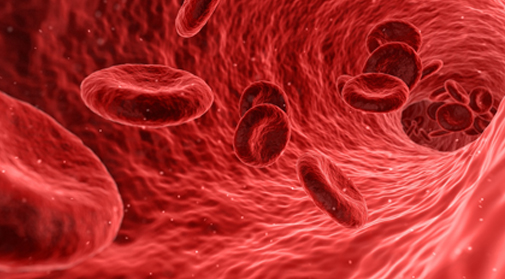Molecular Biology Minor
Students from all Colleges at Alfaisal University are eligible to earn a Molecular Biology Minor with exception of those with Life Sciences major. This may be of particular interest to medical and science students who would like to have a strong foundation in modern molecular bioscience, but don't have the time to complete the full major. Award of the Minor in Molecular Biology requires a minimum of 22 credit hours in the following courses.
Course requirement for a Minor in Molecular Biology: Core courses:
| BIO 101 | General Biology | (4 Credit Hours) | |
|---|---|---|---|
| This is the first module of the general biology introductory course designed for the Life Science Major curriculum. It covers major fields and fundamental principles of the modern biology and provides a foundation to more in-depth and specialized studies during the following years. The course concentrates on physicochemical aspects of life and cellular and molecular mechanisms of fundamental biological process. It also presents the core concepts of modern biology and provides knowledge about the role of various biological macromolecules in the cell physiology; how different types of cells are integrated into multicellular systems; molecular and chromosomal mechanism of heredity. | |||
| Pre-requisites: | None | Co-requisites: | None |
| BIO 112 | General Biology II | (4 Credit Hours) | |
|---|---|---|---|
| This is the second module of the general biology introductory course designed for the Life Science Major curriculum. It concentrates on the fundamental aspects of animal physiology with an emphasis on the human body. The course is focused on the evolution, development, structure, function, health and disease of major physiological systems and regulatory mechanisms coordinating their function in the human organism. | |||
| Pre-requisites: | BIO 101 | Co-requisites: | None |
| BIO 345 | Molecular Biology I | (4 Credit Hours) | |
|---|---|---|---|
| As the first module of the Molecular Biology course, BIO 345 concentrates on molecular mechanisms of genetic processes. This module explains how the flow of biological information from DNA to RNA to protein gives rise to the recognizable, inherited attributes of living organisms. It uses seminal experiments to introduce the students to basic classical and molecular genetics, and then expands on these themes to include genetic engineering and genomic approaches to these phenomena. | |||
| Pre-requisites: | BIO 112; CHM 112 or their equivalents | Co-requisites: | None |
| BIO 357 | Molecular Biology II | (4 Credit Hours) | |
|---|---|---|---|
| As the second module of the Molecular Biology course, BIO 357 concentrates on molecular mechanisms of cellular physiology and interactions. This module provides a detailed knowledge of the structural organization and differentiation of eukaryotic cells as well as key processes in development that are based on cell-cell communication and cell movement. It introduces fundamental properties of the cytoplasm and the roles of the cytoskeleton in fundamental biological processes including chromosome separation, cell motility and intracellular transport processes as well as the evolution, function and biogenesis of cell organelles. | |||
| Pre-requisites: | BIO 345 | Co-requisites: | None |
Elective courses:
Upon consultation with academic advisor, selection of minimum two senior level courses in life and biomedical sciences: currently SCI321-323; LST421-423 or other equivalent courses when become available.
| SCI 321 | Immunology | (3 Credit Hours) | |
|---|---|---|---|
| SCI 321 aims to provide students with an understanding of immunology and the immunological basis of some common and well-known diseases. The course will balance basic knowledge of the underlying complexity of the immune system, such as T and B cell receptor genes, the MHC and antigen presentation, with the application of immunological aspects to infectious diseases, cancer, inflammation and autoimmunity. | |||
| Pre-requisites: | BIO 112 or equivalent. | Co-requisites: | None |
| SCI 322 | Cancer Biology | (3 Credit Hours) | |
|---|---|---|---|
| This course will introduce the core aspects of cancer biology. Emphasis will be placed on molecular mechanisms of cancer pathophysiology - such as signal transduction, DNA damage and repair and regulation of cell division, death and senescence as well as on system biology, microevolution of tumours, interaction between tumour and organism. Course will include cancer epidemiology and analysis of causes of cancer; examine normal and disregulated signalling mechanisms and their manifestations as cancer phenotype. Traditional and novel strategies of cancer prevention, diagnosis and treatment will be discussed. | |||
| Pre-requisites: | BIO 112; CHM 112 or their equivalents | Co-requisites: | None |
| SCI 323 | Signal Transduction | (3 Credit Hours) | |
|---|---|---|---|
| Signal transduction course provides a comprehensive overview of major eukaryotic signaling pathways.The concept of "signal transduction pathway" is one of the major advancement in our understanding of how living cell – a unit of life – is functioning: how it adapt to changing environment and communicates with neighbors in multicellular organisms. Perspective of "signal trasduction" is essential to understand complex biological processes and diseases ranging from memory formation to diabetes and cancer. Signal transduction course presents the principles that underlie all known signaling processes. It provides undergraduate students with the tools needed to make sense of the dizzying array of pathways used by the cell to communicate. | |||
| Pre-requisites: | BIO 112; CHM 112 or their equivalents | Co-requisites: | None |
| LST 421-423 | Life Science Special Topics I-III | (3 Credit Hours) | |
|---|---|---|---|
| Each of these three individual courses introduces special topics relevant to the fields of Biomedical Science, Biotechnology or Chemistry. The course subjects can be modified according to faculty availability, students' preferences and pathways. | |||
| Pre-requisites: | BIO 357 or equivalent | Co-requisites: | None |









